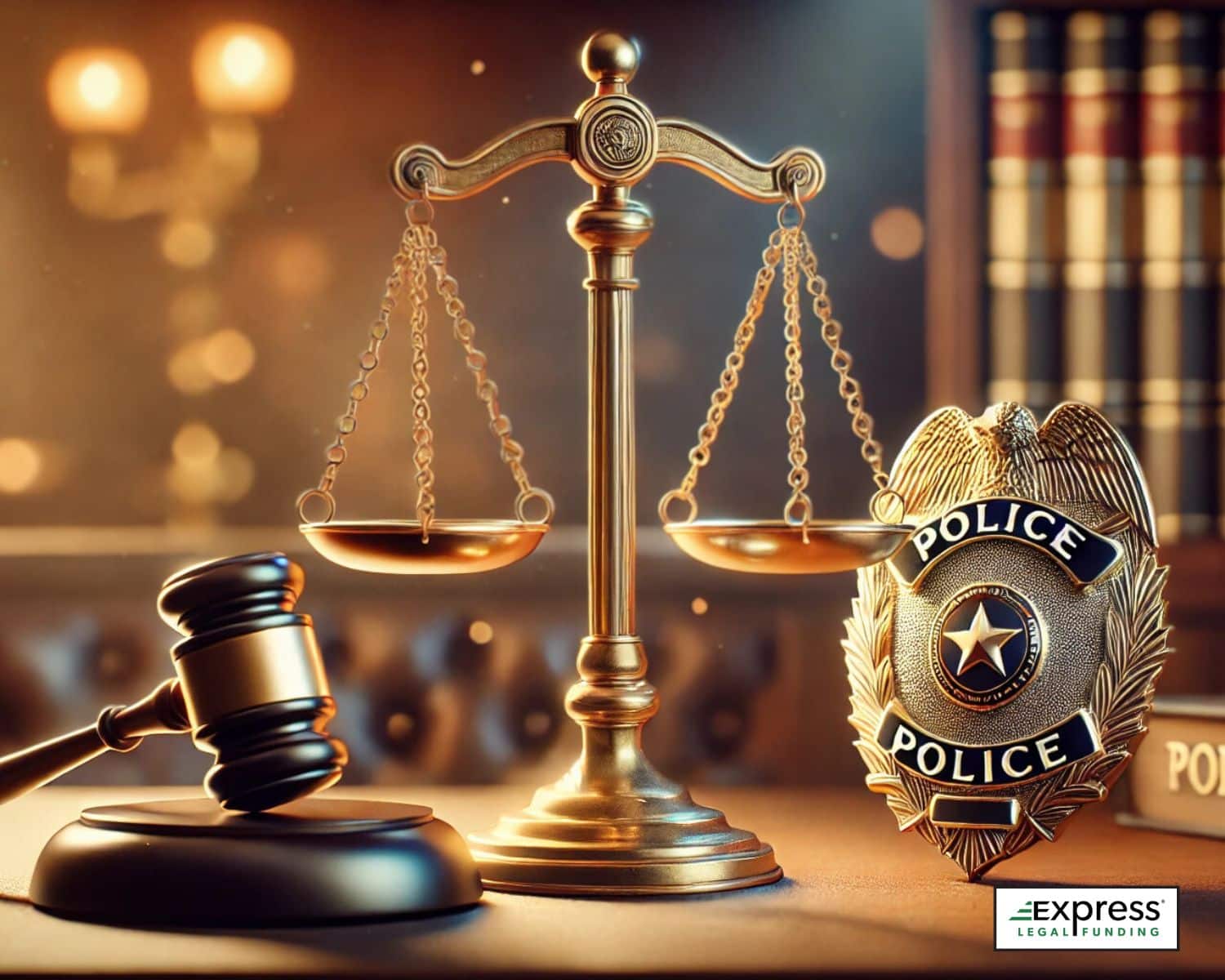
Law enforcement officers have significant authority, but with that power comes responsibility. While police are expected to uphold the law and protect citizens, there are instances where they overstep their legal boundaries, violating the rights of individuals.
When police misconduct occurs, victims have the right to take legal action. Lawsuits against a police department can be complex, but they serve as an essential tool for holding law enforcement accountable and compensating victims.
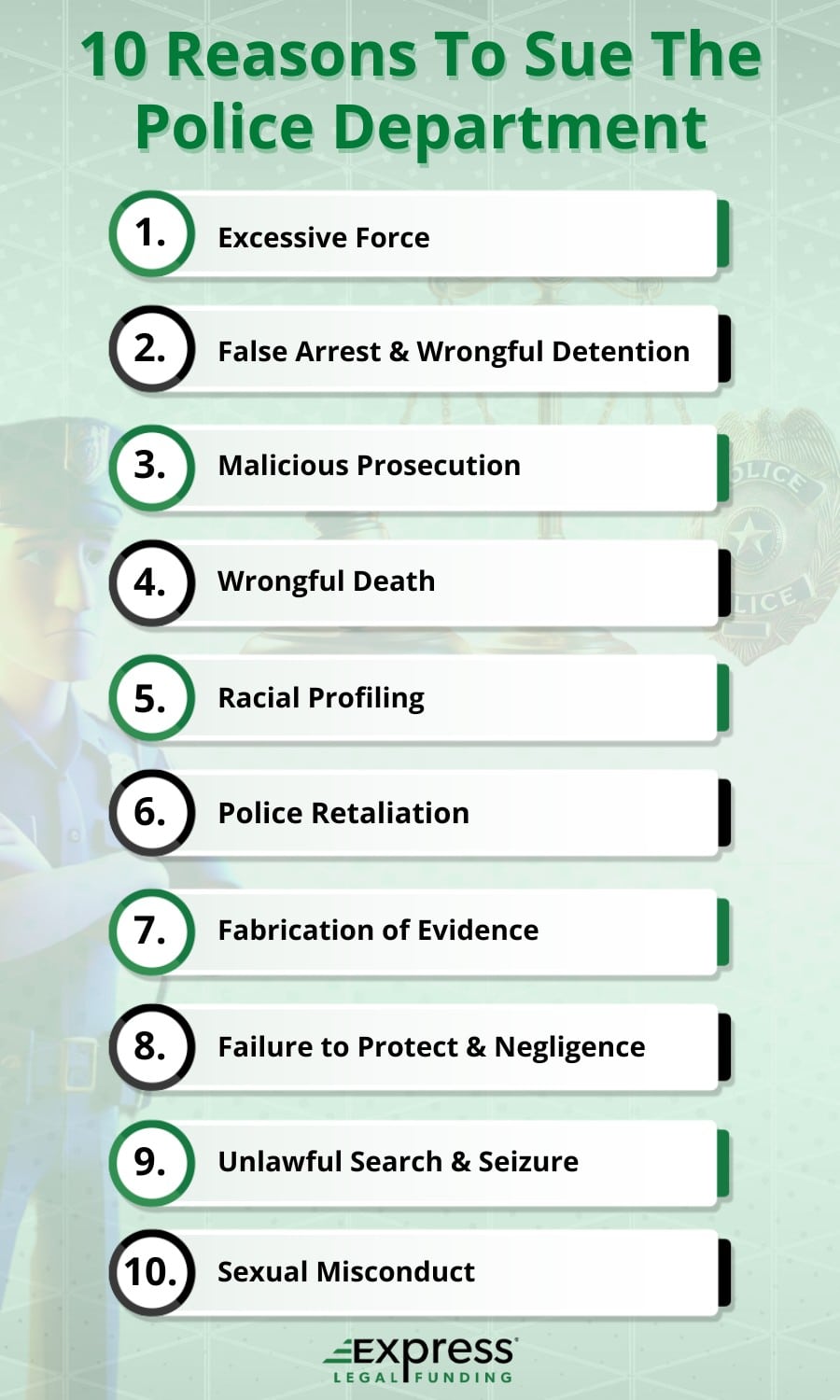
Can You Sue a Police Department?
Yes, you can sue a police department if your constitutional or legal rights have been violated. Common reasons for suing law enforcement include excessive force, false arrest, malicious prosecution, wrongful death, racial profiling, and violations of the First and Fourth Amendment rights of the US Constitution.
Understanding Police Misconduct Lawsuits
Most lawsuits against police departments are filed under 42 U.S.C. § 1983, a federal law that allows individuals to seek damages for civil rights violations.
However, qualified immunity can make these cases challenging, requiring strong evidence and legal representation. If successful, plaintiffs may receive compensatory damages, punitive damages, or court-ordered reforms.
⚖️⏳ Don’t Miss Your Chance to Hold the Police Accountable! Learn the deadlines for filing a claim in our guide: Statute of Limitations for Police Misconduct Lawsuits
10 Reasons You Can Sue the Police Department
- Excessive Force & Police Brutality (Unlawful use of force, tasers, and deadly force by law enforcement.)
- False Arrest, Wrongful Detention & Illegal Imprisonment (Unlawful police detainment or lack of probable cause.)
- Malicious Prosecution & Wrongful Criminal Charges (When police file false charges with no legal basis.)
- Wrongful Death Caused by Police Officers (Excessive force or negligence leading to fatalities.)
- Racial Profiling, Discrimination & Civil Rights Violations (Unjustified police stops, harassment, and racial bias.)
- First Amendment Violations: Police Retaliation for Free Speech (Arrests or intimidation for filming police or protesting.)
- Fabrication of Evidence, False Testimony & Wrongful Convictions (Planting evidence, lying in court, or withholding exculpatory evidence.)
- Failure to Protect Citizens & Police Negligence (When law enforcement ignores threats or fails to act.)
- Fourth Amendment Violations: Unlawful Search, Seizure & Illegal Police Raids (Illegal home searches, vehicle searches, and privacy violations.)
- Police Sexual Misconduct, Harassment & Abuse of Authority (Cases of officer sexual assault, coercion, and misconduct.)
1. Excessive Force & Police Brutality
Law enforcement officers are required to use force that is proportional to the situation. When officers use excessive force beyond what is objectively reasonable, it may violate a person’s Fourth Amendment rights, as courts consider it an unreasonable seizure under the US Constitution.
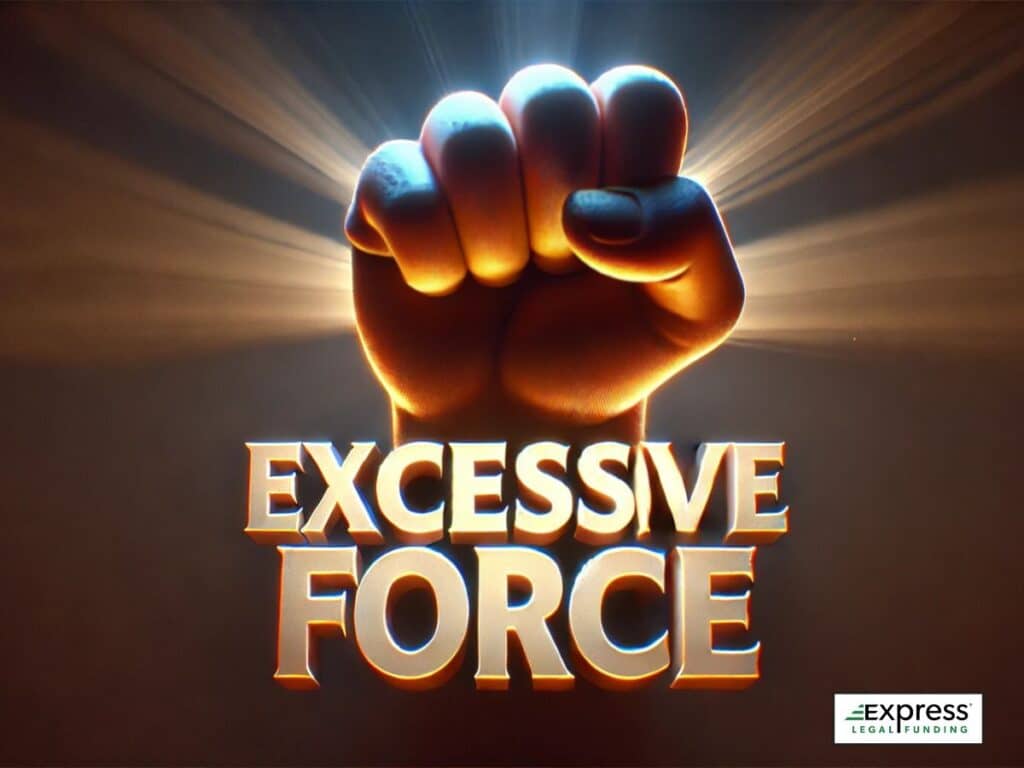
Examples include:
- Unjustified shootings of unarmed individuals.
- Excessive use of tasers, batons, or chokeholds.
- Physical beatings when suspects are already subdued.
Victims can file a civil rights lawsuit under 42 U.S.C. § 1983 to seek damages.
Relevant Case Law: Tennessee v. Garner, 471 U.S. 1 (1985) – The Supreme Court ruled that law enforcement officers cannot use deadly force against a fleeing suspect unless there is a significant threat of harm to others.
2. False Arrest, Wrongful Detention & Illegal Imprisonment
An arrest must be based on probable cause—meaning officers must have a reasonable basis to believe someone committed a crime. When police arrest individuals without sufficient justification, it violates their Fourth Amendment rights.

Legal consequences for false arrests and illegal detentions include:
- Claims for false imprisonment or wrongful detention.
- Compensation for lost income, legal fees, and emotional distress.
🛍️ Were You Illegally Detained for Shoplifting? Know your rights! Read our guide: What Is Shopkeeper’s Privilege? The Law By State
Relevant Case Law: Brown v. Texas, 443 U.S. 47 (1979) – Held that a person cannot be detained or arrested simply for refusing to identify themselves unless there is reasonable suspicion of a crime.
3. Malicious Prosecution & Wrongful Criminal Charges
When an officer knowingly files false charges against an individual, it constitutes malicious prosecution, a violation of the Fourteenth Amendment’s due process protections.
To prove malicious prosecution, a plaintiff must show:
- The officer initiated charges without probable cause.
- The charges were dismissed in their favor.
- The officer had malicious intent or improper motives.
Relevant Case Law: Albright v. Oliver, 510 U.S. 266 (1994) – The Supreme Court recognized malicious prosecution as a potential violation of the Fourteenth Amendment’s Due Process Clause.
4. Wrongful Death Caused by Police Officers
If a police officer’s actions result in someone’s death, the victim’s family may sue for wrongful death. Excessive force, reckless shootings, or failure to provide medical aid can all result in liability.
High-profile cases, such as George Floyd’s death, have led to significant settlements and policy changes. Surviving family members can pursue lawsuits seeking compensation for funeral expenses, emotional suffering, and financial loss.
Relevant Case Law: Estate of Jones v. City of Martinsburg, 961 F.3d 661 (4th Cir. 2020) – Ruled against officers who shot a suspect already secured by handcuffs, leading to a wrongful death, even with qualified immunity as a defense.
5. Racial Profiling, Discrimination & Civil Rights Violations
Racial profiling occurs when officers target individuals based on race, ethnicity, or national origin rather than actual criminal behavior. This violates the Equal Protection Clause of the 14th Amendment and federal anti-discrimination laws.
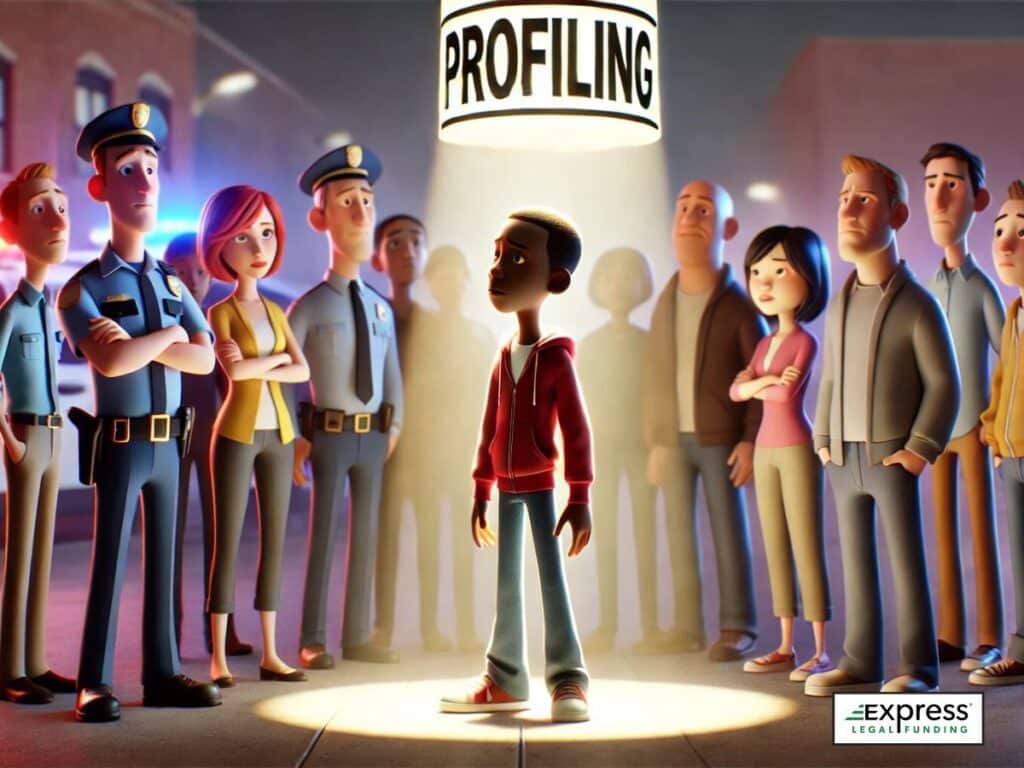
Potential legal actions for racial profile and civil rights violations include:
- Filing a civil rights lawsuit against the department.
- Joining a class-action lawsuit against systematic racial profiling practices.
- Department of Justice (DOJ) investigations into unconstitutional policing practices.
Relevant Case Law: Whren v. United States, 517 U.S. 806 (1996) – While allowing pretextual traffic stops, this case emphasized that racial discrimination in policing violates the Equal Protection Clause.
6. First Amendment Violations: Police Retaliation for Free Speech
The First Amendment protects the right to record police, protest, and criticize government actions. Officers who retaliate by arresting, intimidating, or using force against individuals for exercising these rights can be sued.
Examples of police retaliation include:
- Arresting journalists or protesters without cause.
- Using force against individuals recording police misconduct.
- Threatening whistleblowers who expose police corruption.
Relevant Case Law: City of Houston v. Hill, 482 U.S. 451 (1987) – The Supreme Court ruled that individuals have the right to verbally challenge police officers without fear of arrest.
7. Fabrication of Evidence, False Testimony, Wrongful Convictions
Some officers falsify evidence or provide false testimony to secure convictions. This misconduct can lead to wrongful arrests and imprisonment.
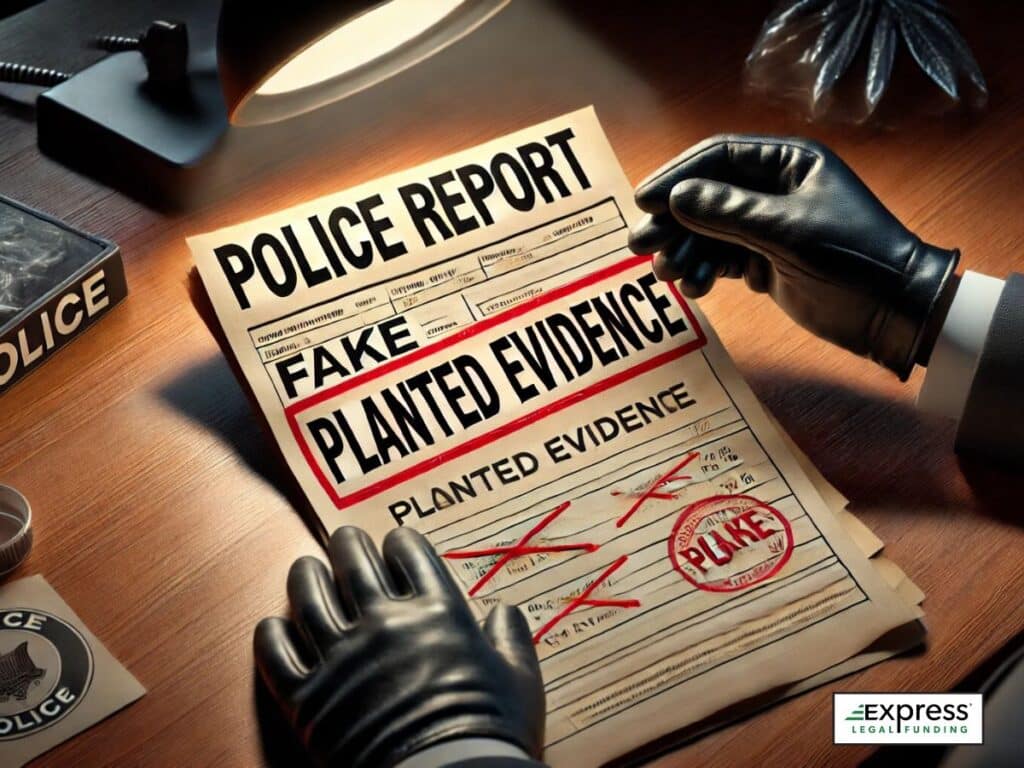
Key legal violations include:
- Brady violations—when officers withhold evidence that could help a defendant.
- Planting drugs, weapons, or other false evidence.
- Lying in reports or in court testimony.
Victims of wrongful convictions can sue for civil rights violations and, in some cases, may receive financial settlements for their time spent incarcerated.
Relevant Case Law: Napue v. Illinois, 360 U.S. 264 (1959) – Ruled that knowingly presenting false testimony violates due process.
8. Failure to Protect Citizens & Police Negligence
Police officers have a duty to protect citizens from harm. When they fail to act, knowing that someone is in danger, they may be liable for negligence.

Examples of police failing to protect citizens include:
- Ignoring domestic violence reports that lead to further harm.
- Failing to respond to emergency calls in a timely manner.
- Allowing known threats to go unchecked, such as school shootings or violent crime.
These cases can be challenging but may lead to civil liability claims against police departments.
Relevant Case Law: DeShaney v. Winnebago County, 489 U.S. 189 (1989) – The Supreme Court ruled that police have no constitutional duty to protect individuals from private violence unless they create the danger themselves.
9. Fourth Amendment Violations: Unlawful Search, Seizure & Illegal Police Raids
Under the Fourth Amendment, police cannot search your property without a warrant or probable cause. If an officer illegally searches your car, home, or personal belongings, any evidence they obtain may be thrown out in court.

Common examples of illegal searches include:
- Traffic stops where officers search a vehicle without consent or legal justification.
- Entering a home without a warrant.
- Seizing property without justification.
Victims can sue for constitutional violations and request suppression of evidence in their criminal cases.
Relevant Case Law: Katz v. United States, 389 U.S. 347 (1967) – Recognized privacy rights and expanded what constitutes a search and seizure under the Fourth Amendment.
10. Police Sexual Misconduct, Harassment & Abuse of Authority
When police officers engage in sexual assault, harassment, or coercion, they violate the law and the trust of the community. This is viewed as one of the most severe forms of misconduct.

Victims of police abuse of power and sexual misconduct can seek justice through:
- Civil lawsuits against the officer and department.
- Criminal charges against the officer.
- Federal investigations for civil rights violations.
Relevant Case Law: Fontana v. Haskin, 262 F.3d 871 (9th Cir. 2001) – Unwanted sexual touching or harassment by police during an arrest or detention is a violation of the Fourth Amendment and can be grounds for a civil rights lawsuit.
🔍 Discover the Real Impact of Police Misconduct. Explore our in-depth guide: What Are the Financial & Social Costs of Police Misconduct?
Legal Steps to Take if You Want to Sue
If you believe your rights have been violated by police, take the following steps:
- Gather evidence: Save body cam footage, witness statements, medical reports, and police reports.
- Consult a civil rights attorney: An experienced lawyer can help you understand your options.
- File a complaint: You can do this by reporting police misconduct to the department’s internal affairs or by filing a lawsuit.
- Know the statute of limitations: Each state has a deadline for filing claims against law enforcement.
🤔 Thinking of Scheduling a Free Consultation with an Attorney? Be prepared! Read our guide first: 15 Must-Ask Questions in a Free Lawyer Consultation. 🆓
Types of Compensation in a Lawsuit Against the Police
When suing a police department for misconduct, victims may be entitled to various types of damages, depending on the nature of the case and the harm suffered. These damages serve different purposes, from financially compensating the victim to punishing the officer or department and implementing policy reforms.

Compensatory Damages
Compensatory damages are designed to reimburse victims for the harm they have suffered due to police misconduct. These damages include:
- Medical Expenses: Coverage for hospital bills, rehabilitation, and long-term care.
- Lost Wages: If a wrongful arrest caused a loss of income, victims may be compensated.
- Pain and Suffering: Compensation for physical pain, emotional distress, PTSD, and humiliation.
Punitive Damages
Punitive damages serve a different purpose than compensatory damages—they are meant to punish the police officer or department for extreme misconduct and deter future violations.
Punitive damages may be awarded in cases where:
- The officer acted with malicious intent or reckless disregard for the victim’s rights.
- The misconduct was especially egregious, such as police brutality, racial discrimination, or falsification of evidence.
- The department had a known history of misconduct and failed to take corrective action.
Injunctive Relief (Court-Ordered Police Reform)
In addition to financial compensation, courts may grant injunctive relief, which requires the police department to change its policies or practices.
Victims or advocacy groups may request injunctive relief to:
- Mandate body cameras on officers to prevent future misconduct.
- Require retraining on the use of force, racial profiling, or constitutional rights.
- Dismantle discriminatory practices, such as illegal stop-and-frisk programs.
- Increase civilian oversight, including independent review boards to investigate police misconduct.
Legal Barriers & Defenses in Lawsuits Against the Police
Proving police department misconduct is challenging due to legal defenses like:
- Qualified Immunity: Protects police departments from lawsuits unless they clearly violate established law.
- Burden of Proof: Plaintiffs must provide strong evidence of wrongdoing.
- Settlement vs. Trial: Many cases settle out of court, but some require lengthy litigation.
When Qualified Immunity Does NOT Apply:
- If police officers violate “clearly established” constitutional rights (Hope v. Pelzer, 536 U.S. 730 (2002)).
- If an officer acts with deliberate malice (Malley v. Briggs, 475 U.S. 335 (1986)).
Final Thoughts: Understanding Your Rights to Sue the Police

While police officers have a duty to enforce the law, they are not above it. When they violate people’s rights, victims have the power to seek justice through civil lawsuits. Holding law enforcement accountable is essential to maintaining trust, transparency, and fairness in our legal system.
If you or someone you know has been a victim of police misconduct, consult an attorney to explore your legal options and protect your rights.
How Express Legal Funding Can Help Plaintiffs Suing the Police Department
If you or a loved one has been a victim of police misconduct, pursuing legal action can be time-consuming and financially draining. Lawsuits against a police department often take months or even years to resolve, and during that time, you may face lost wages, medical bills, and daily living expenses.
That’s where our team at Express Legal Funding comes in. We can provide you with a lawsuit cash advance while your claim is pending.
What Is Express Legal Funding?
Express Legal Funding is a nationally recognized pre-settlement funding company that provides risk-free financial support to plaintiffs in civil lawsuits, including cases involving police misconduct, wrongful death, and civil rights violations. We offer non-recourse legal funding, which means:
- You Only Repay If You Win: If your case is unsuccessful, you owe us nothing.
- Fast and Hassle-Free Process: Get approved quickly, often within 24 hours.
- No Credit Checks or Employment Verification: Your eligibility is based on your case, not your credit score.
Why Choose Express Legal Funding for Your Pre-settlement Funding?
- Stay Financially Stable While Fighting for Justice: Don’t let financial stress force you into an unfair settlement.
- Cover Essential Expenses: Use your funds for rent, medical bills, lost wages, or daily costs.
- Work With an Experienced Team: Our funding specialists understand the challenges of civil rights lawsuits and can help you get the financial relief you need.
- Low Rates: Our affordable pre-settlement funding enables you to keep more of your settlement when your case resolves.
Apply for Pre-settlement Legal Funding Today
If you’re suing a police department or pursuing a civil rights claim, you don’t have to struggle alone. Express Legal Funding can provide the financial support you need while your case moves forward.
📞 Call us today at (888) 232-9233 or Apply Online to see how much legal funding you qualify for! Your fight for justice shouldn’t come at the cost of financial hardship.



